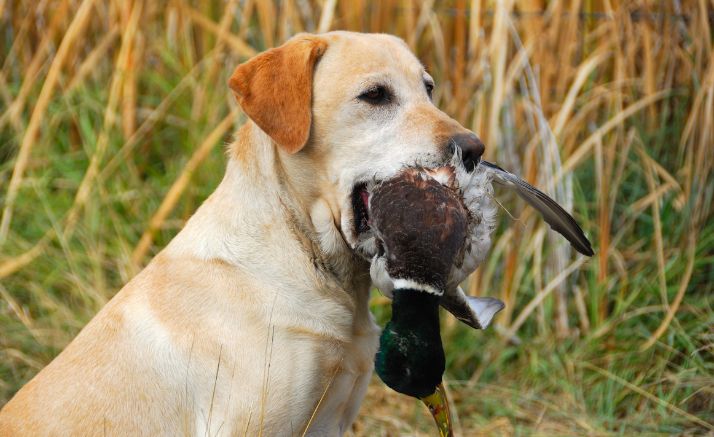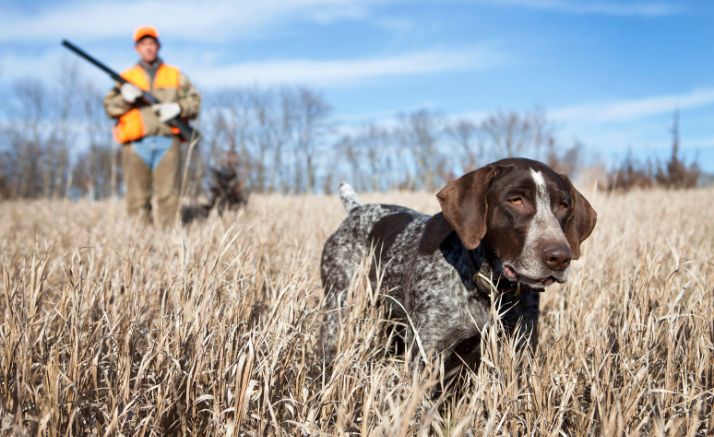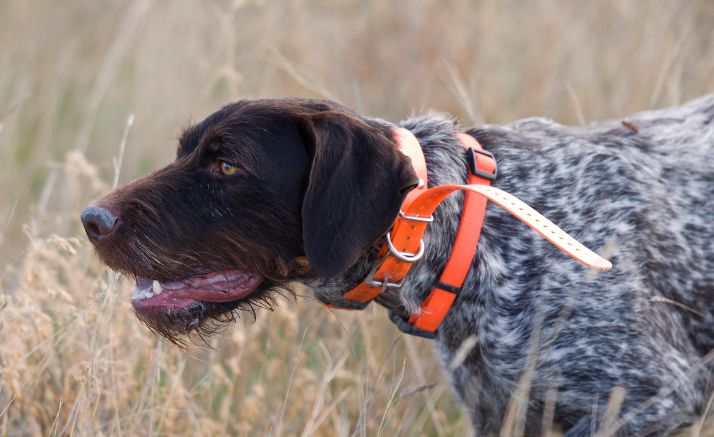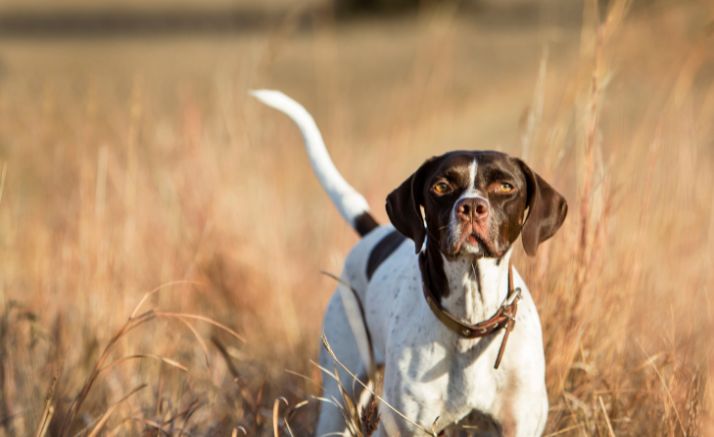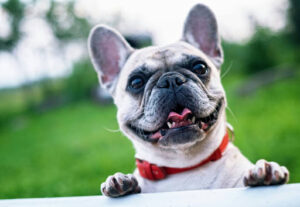Training a dog is a nuanced process, demanding thoughtful consideration and patience. The optimal time to commence dog hunting training depends on various factors such as breed, individual traits, and the intended hunting type. Generally, basic training can begin as early as 6-8 weeks to establish a strong bond and introduce fundamental commands. However, formal hunting training often commences between 6 and 12 months when dogs are more physically and mentally prepared.
Early socialization, basic obedience, and exposure to different terrains lay the groundwork. As the dog matures, more specialized training in retrieving, scent work, and simulated hunts refine their skills. Adapt the training timeline to the dog’s development, ensuring a gradual and positive progression towards becoming a skilled and reliable hunting companion.
In this comprehensive guide, we’ll explore the key factors to consider and a step-by-step approach to training a hunting dog.
Understanding the Basics of Dog Hunting Training:
- Breed Characteristics: Different dog breeds have distinct hunting instincts and energy levels. Some breeds are naturally predisposed to hunting, while others may need more encouragement. Research your dog’s breed to understand its inherent traits and tendencies.
- Individual Readiness: Every dog is unique, and individual readiness for training can vary. Most experts suggest starting basic training around 6-8 weeks of age, focusing on building a strong bond and positive associations. However, formal hunting training often begins between 6 and 12 months when a dog is more physically and mentally prepared.
Basic Obedience Training (3-6 Months):
- Continuation of Basic Commands: As your dog progresses with the basic commands such as sit, stay, come, it’s important to reinforce and refine these commands. Practice these commands in different settings and with various distractions to ensure your dog responds reliably in any situation. Positive support, such as treats or praise, should be used consistently to encourage good behavior. This will help strengthen the bond between you and your dog and make training more effective overall.
Introduction to Retrieving:
Introducing retrieving activities using soft toys is a great way to develop your dog’s natural instincts for retrieving. This skill is especially important for hunting dogs, as they will need to retrieve game during hunting trips. Start by tossing the toy a short distance and encouraging your dog to bring it back to you. Once your dog is comfortable with this, you can gradually increase the distance and introduce different objects for retrieving. This will help build confidence and make a fun and engaging activity for your dog.
Crate Training:
Crate training is a crucial skill for any dog, especially for hunting dogs who may be required to travel in a crate during hunting trips. Start by making the crate a comfortable and inviting space for your dog, using treats or toys to encourage them to enter. Gradually increase the amount of time your dog spends in the crate, always ensuring that it is a positive experience. Crate training can assist in keeping your dog safe during transportation and provide them with a secure space to rest when needed.
Early Socialization for Dog Hunting Training (6-8 Weeks):
- Bonding and Positive Association: During the critical developmental period of 6-8 weeks, early socialization lays the groundwork for a well-rounded and confident hunting dog. The primary focus is on building a strong bond between you and your dog through positive reinforcement. Utilize treats and praise to create positive associations, fostering a trusting relationship that will be essential in future training endeavors.
- Basic Commands: Basic commands become the building blocks of communication. Introduce fundamental instructions like “sit,” “stay,” and “come.” These commands not only establish discipline but also serve as the foundation for more advanced hunting-specific training as your puppy matures.
- Expose to Different Terrains: To acclimate your puppy to the varied environments encountered during hunting, expose them to different terrains. Allow them to navigate through grass, water, and woods, promoting confidence and comfort. This early exposure contributes to the development of a dog that is adaptable and at ease in diverse hunting environments.
In essence, the early socialization phase is about nurturing a positive connection, instilling basic obedience, and familiarizing your puppy with the diverse terrains they may encounter in their future role as a hunting companion. This foundational period establishes the groundwork for a well-adjusted and capable hunting dog. You may use Garmin Alpha 100 in the initial phase to track your dog’s location.
Intermediate Dog Hunting Training (8-12 Months):
- Introduction to Scent Work: Gradually introduce scent-based activities, such as hiding treats or toys for your dog to find. This helps develop their olfactory skills, which are vital for tracking during hunts.
- Structured Exercise: Engage your dog in regular, structured exercise to build endurance and stamina. Long walks, hikes, and swimming are excellent activities to enhance overall fitness.
- Gun Introduction: Familiarize your dog with the sound of gunfire in a controlled environment. Start with muffled sounds, gradually increasing the volume as your dog becomes comfortable. Always associate the noise with positive experiences like treats and play.
Specialized Hunting Training (1 Year and Older):
- Formal Retrieving Training: Build on basic retrieving skills with more complex exercises, simulating hunting scenarios. Incorporate water retrieves and various types of terrain to enhance versatility.
- Scent Training: Introduce more advanced scent training by using scented dummies or game birds. Encourage your dog to track scents over longer distances, mimicking real hunting situations.
- Simulated Hunts: Create simulated hunting scenarios to expose your dog to realistic situations. This includes navigating obstacles, following scent trails, and retrieving decoys or training dummies.
- Collar Conditioning: Introduce and condition your dog to an electronic training collar like Dogtra e-Collar. This tool can be useful for reinforcing commands and controlling your dog at a distance during hunts.
- Advanced Commands: Teach advanced commands such as “heel,” “down,” and “quiet.” These commands contribute to better control and safety during actual hunting situations.
Ongoing Maintenance and Improvement:
- Consistent Reinforcement: Maintain regular training sessions even after your dog becomes proficient. Consistency is key to reinforcing learned behaviors and preventing regression.
- Continued Exposure: Expose your dog to various hunting environments regularly. This helps them stay acclimated to different terrains and conditions.
- Hunt Participation: Engage in actual hunts to provide practical experience. This is crucial for translating training into real-world scenarios. Start with less challenging hunts and gradually progress.
- Regular Vet Checkups: Ensure your dog is in optimal health with regular veterinary checkups. Address any physical or medical concerns promptly to maintain their hunting performance.
Training a hunting dog is a gradual journey, commencing in the early stages of a dog’s life and evolving as they mature. Foundational training lays the groundwork, emphasizing basic obedience, socialization, and exposure to diverse environments. As your dog grows, so does the complexity of their training regimen. The key is to begin with fundamental obedience commands, creating a solid behavioral foundation. Gradually, introduce more specialized hunting skills such as retrieving, scent work, and simulated hunts to refine their abilities.
Two P’s-Patience and Positivity!
Patience and positive reinforcement are cornerstones of successful training. Building a strong bond between you and your dog fosters trust and enhances the learning experience. Recognizing the individual pace of your dog’s development is crucial; adjust the training timeline accordingly. Prioritize your dog’s well-being, ensuring a positive and enjoyable training environment.
Dedicated and Consistent Effort!
Dedication and consistent effort are the pillars of success in training a hunting dog. The investment in time and patience will yield a skilled and reliable companion ready to navigate the challenges of the hunt. The journey of training is not just about honing skills; it’s about forging a lasting connection between you and your four-legged hunting partner!


